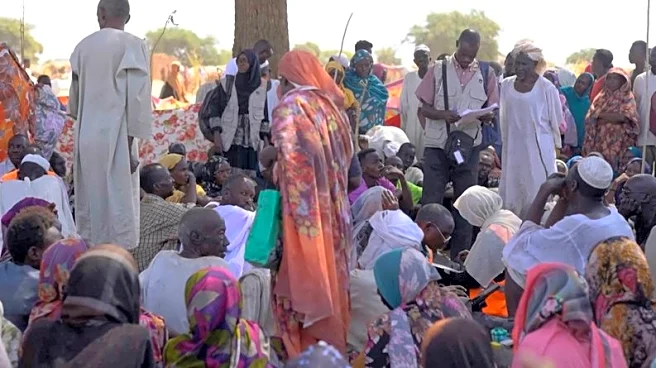By Olivia Le Poidevin
GENEVA (Reuters) -Women fleeing Sudan's al-Fashir city report killings, systematic rape and the disappearance of their children following its capture by the paramilitary Rapid Support Forces (RSF), the U.N. agency for women said on Tuesday.
Al-Fashir's fall on October 26 has cemented the RSF's control of the Darfur region in its 2-1/2-year war with the Sudanese army. People fleeing the city have described civilians being shot in the streets and attacked in drone strikes.
Women
escaping from al-Fashir say they have witnessed killings, rape and the disappearance of their children -- "horrors that no one should ever endure," the U.N. Women Regional Director for East and Southern Africa, Anna Mutavati, told reporters in Geneva via video link from Nairobi.
Sexual violence was widespread, she said.
"There is mounting evidence that rape is being deliberately and systematically used as a weapon of war," she stated.
"Women's bodies become a crime scene in Sudan. There are no safe spaces that are left, nowhere for women to gather safely, to seek protection or even access even the most basic psychosocial care," she added.
Around 11 million women and girls are facing acute food insecurity in famine-struck Darfur, and UN Women warned they even face sexual violence while searching for food.
Field reports from Darfur describe women foraging for wild leaves and berries to boil into soup.
"While doing this, they face additional risks of violence, including abduction and sexual and gender based violence," Mutavati said.
Famine was declared by a global food monitor in al-Fashir and Kadugli, another besieged city in Sudan's south, this month.
The U.N. Human Rights Chief said on Friday that he feared summary executions, rape and ethnically motivated violence are continuing in the town.
About 82,000 people have fled al-Fashir and surrounding areas since October 26, according to the U.N., while as many as 200,000 people may still be trapped inside the city, according to estimates of its population towards the end of the 18-month siege.
(Reporting by Olivia Le Poidevin, Editing by William Maclean)















